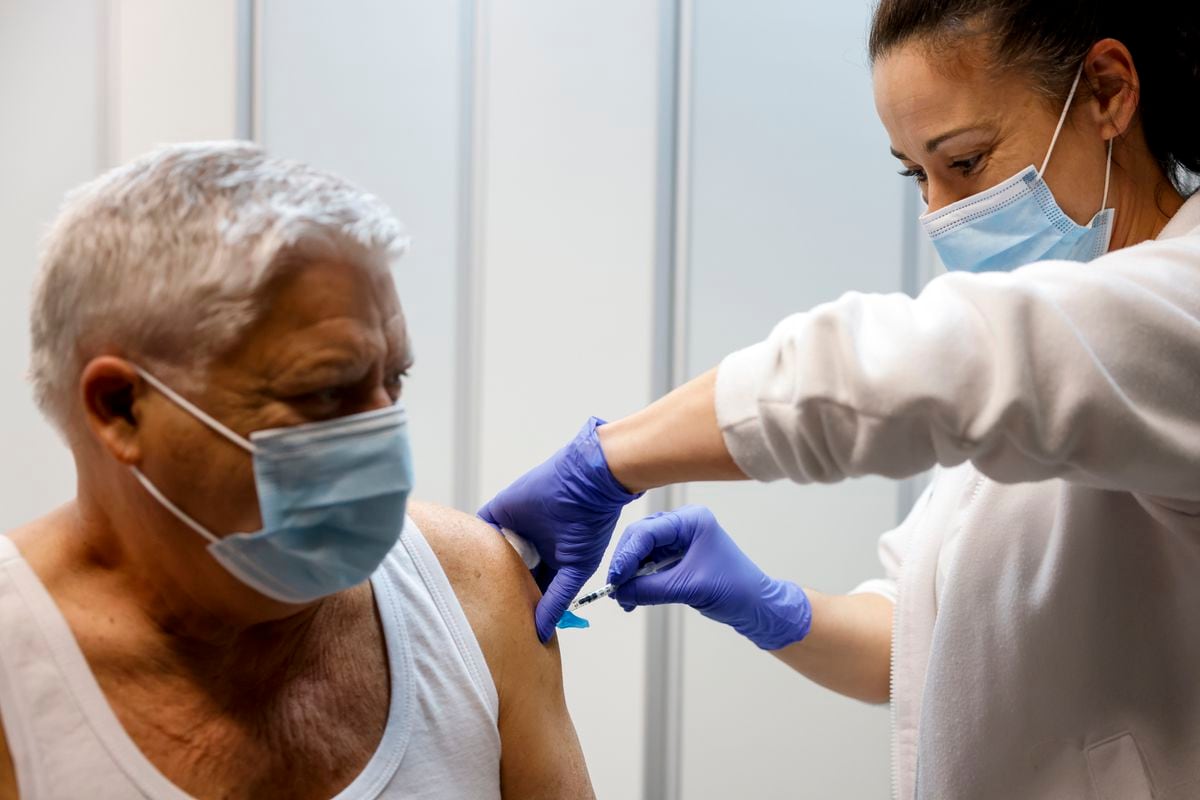As the saying goes, “When you see your neighbor’s beard peeling, soak your own,” and something similar happened with the flu in Catalonia. A wave of the virus has restarted vaccinations in the region after saturating parts of the health system. Operational response. Ester Giménez, president of the Catalan Association of Home and Community Care (Aificc), said: “People have seen the news reports and the impact of influenza and are coming to get vaccinated now.” The new interest aims to increase influenza vaccination rates, which is The lowest level in the past four years.
The outpatient clinic’s prevention agenda is once again full. According to different sources consulted, in CAP Pubilla Casas (Esplugues), high demand has depleted the stocks of anti-coronavirus vaccines, although this shortage of supply is an exception. “It looks like people want to get vaccinated again,” one nurse celebrated. At CAP Manso (Barcelona) the agenda was so full that in the first days after the holidays opportunistic vaccinations, i.e. unscheduled injections given during the visit, were not used, as happened recently. Another staff member at the center celebrated: “80% of the vaccines now come by appointment, from users who asked for the vaccine.” “People explained to us that they were aware of the situation in the hospital and that they came to avoid being in the hospital. Masks are being used again in some places,” the health worker added. In light of the increase in the virus, at least four Catalan hospitals have had to rearrange some interventions to guarantee the care of emergency inpatients, and the Ministry of Health has also ordered the mandatory use of masks in all health centres.
Vaccination rates are lower among vulnerable groups, those over 60 or those with underlying medical conditions. According to the latest report released by the Department of Health on Tuesday, the proportion of influenza vaccination among the target population is 45.6%, which is well below the records in 2022 (52.4%), 2021 (55.6%) and 2020 (53.8%). same time of year. “We noticed a decrease in numbers, which affected the number of hospitalized patients,” lamented Tomàs Pumarola, a microbiology researcher at Hebron Valley Hospital. In Catalonia, two-thirds of hospital patients with respiratory viruses were not vaccinated.
The question is how long the vaccination rebound will last and what impact it will have on the health system. The immunization process takes about two weeks to complete, and experts believe the peak of infection will be over. “It’s important to get them vaccinated, but now we’re a little late,” lamented the Manso nurse. In any case, the increase in the number of people vaccinated is not expected to be particularly significant compared with previous years. Pumarola said it would take about three weeks for the reduction in infections and hospital admissions to reach baseline levels.
Asked about the reasons for the drop in vaccinations, Health Minister Manel Balcells acknowledged on Tuesday that there was a certain “fatigue.” “There’s a certain epidemic fatigue and relaxation in the face of danger,” he analyzed. “Maybe it’s not as big of a threat as COVID-19: influenza is more common… The Ministry of Health has been insisting on vaccinations, but the vaccination rate is lower than we would like. In any case, they are still on time. Vaccination can avoid personal and Trouble with the system.”
You can follow EL PAÍS Catalunya Facebook and Xor sign up here to receive our weekly newsletter
What has had the biggest impact is what happened recently. So you don’t miss a thing, subscribe.
subscription

